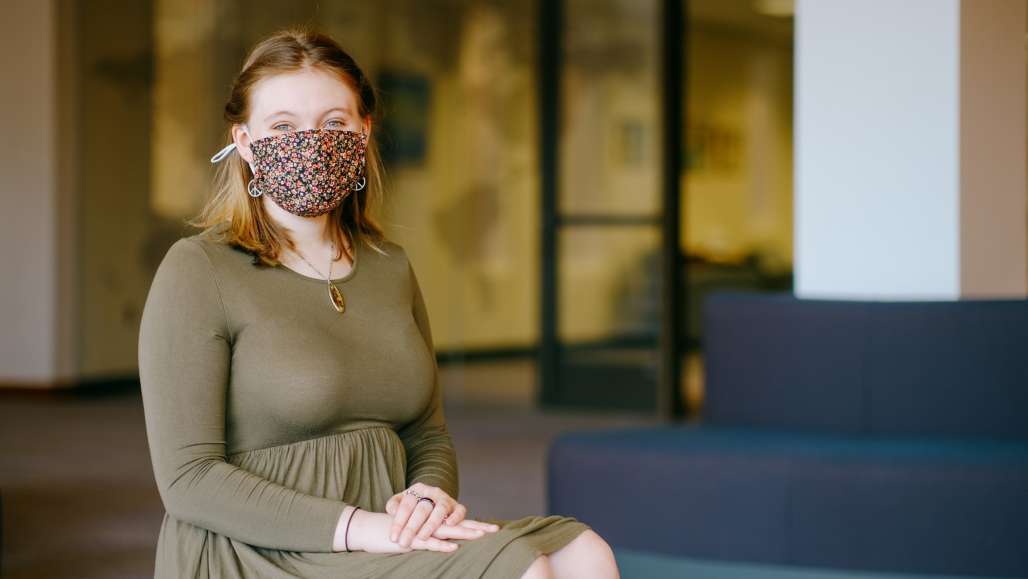Restorative Justice Handbook for Keene State Students

At Keene State, students often get to partner with professors to study important and globally relevant topics. These experiences provide students with opportunities to develop research skills and gain insight into potential career paths. In that spirit, Bailey Saddlemire ’22 worked with Women’s and Gender Studies Professor Patricia Pedroza Gonzaléz this semester on creating a restorative justice handbook for Keene State College students.
Funded through a grant from Fidelity Charitable to support community action works that specifically employ students in activist research projects, Dr. Pedroza Gonzaléz thought developing a handbook about restorative justice would be useful and timely for students since the college is implementing restorative justice programming. Bailey was selected to work on this project as she has been an active participant in community-building restorative circles taking place on campus.
“As a professor, I’m always looking for ways to collaborate with students,” said Dr. Pedroza Gonzaléz. “For this project, I needed a student who understands how to synthesize scholarly materials into a text for a wide audience and is responsible and open to feedback. Bailey has all that. She and I also did several restorative justice circle trainings together over the winter, so I knew she was the right student for this work.”
Bailey is double majoring in psychology and criminal justice, with minors in women’s and gender studies and sociology. Working on a restorative justice handbook is in line with Bailey’s interests. “I really like being able to understand the intersection of interconnectedness with oppression, and to learn exactly what people’s lives are like. My majors are really interdisciplinary, which means these topics are applicable to a range of different subjects,” she said.
The Restorative Justice Handbook will break down the principles in an easy-to-understand format with prompts so students can explore their thoughts and feelings. “Restorative justice is the idea of giving everyone a chance, that everyone wants to be in community and in connection with everyone else,” she said. “It’s really about treating others with respect and about restoring community bonds, instead of creating more harm. The principles all come down to the idea of interconnectedness. The handbook will go over the guiding questions and the main types of restorative justice programs, which are victim offender conferencing, family group conferencing, and peacemaking circles. This is what we’re doing on campus.”
“I was really excited about the project, and excited to work with Patricia because I actually first met her at an Open House when I was a prospective student. She was so passionate and really showed me that professors are really engaged with students, and that’s the academic setting I was looking for,” shared Bailey. “It’s been incredible to work this closely with Patricia. She’s very intelligent and insightful, and she really makes me question and think about things.”
Bailey hopes students learn about this project and see it as affirmation that there are many professors, staff, and students at Keene State who are passionate about this work. “I hope students see this and have hope. I also want to see more students involved because that’s how it will grow. These kinds of efforts are important. While restorative justice isn’t always seen as concrete action, it’s an important step towards healing the community and creating a better environment,” she said.
Bailey will present “Restorative Justice: An Introductory Handbook” at the 21st annual Academic Excellence Conference on Saturday, May 8 at 1:30 p.m. This year’s celebration of academic achievement is virtual and open to the public. The full schedule of presentations is available here.





